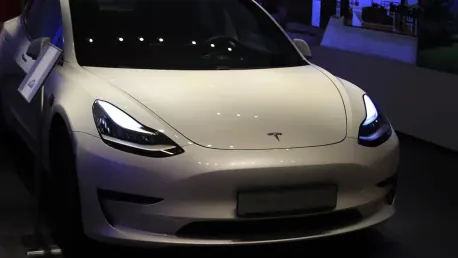Tesla has announced a groundbreaking initiative to invest in a state-of-the-art materials recycling facility for electric vehicle (EV) batteries. This bold move aims to address the significant environmental impacts and cost challenges currently associated with both battery manufacturing and disposal. The company plans to develop cutting-edge recycling technology designed to recover valuable materials from expired batteries, a process known as “closed-loop recycling.” By reusing key metals such as lithium, cobalt, and nickel, Tesla hopes to minimize waste and reduce the need for new raw materials, which ultimately could lower battery costs by up to 30%.
Environmental and Industry Impact
Setting New Standards for Sustainability
This initiative has the potential to substantially influence the entire EV industry by encouraging other manufacturers to adopt similar sustainable practices. Through its commitment to both innovation and sustainability, Tesla is poised to set a new standard for eco-friendly transportation, which could significantly shift public perception and make electric vehicles more accessible to the average consumer. Consequently, this move also has the potential to accelerate the transition from combustion engines to EVs, contributing to the global effort to combat climate change.
Tesla’s recycling strategy aims to address one of the most pressing challenges in the EV market: the environmental and economic ramifications of battery disposal. By adopting closed-loop recycling, the company seeks to utilize advanced technology to reclaim valuable materials, effectively reducing the waste generated from battery production and disposal. However, the efficacy and overall impact of this approach will depend on various factors, including the energy required for recycling processes and the potential for emissions unless they are powered by renewable sources.
Economic Impacts and Job Creation
Beyond its clear environmental benefits, Tesla’s recycling initiative could provoke a significant reshaping of global resource economics by reducing the world’s dependence on raw materials. Such a shift could lead to substantial economic changes in countries heavily reliant on mining industries, prompting these nations to diversify their economic activities as they adapt to a decreasing demand for newly mined materials. While this transition poses uncertainties, it also opens up new opportunities for regions that invest in recycling operations, potentially creating new job opportunities.
The economic impact of the initiative could vary widely depending on the location. Communities situated near mining operations might experience a decline in economic activities, while regions equipped with recycling facilities could see a boost in employment opportunities. Ensuring that these new jobs are accessible to those displaced by the downsizing of mining industries will be crucial for achieving a fair and equitable transition. The transition to a more sustainable economy hinges on carefully planned and executed strategies that consider both environmental and economic implications.
Financial Implications and Market Position
Enhancing Profit Margins and Stock Value
Financial analysts hold an optimistic view regarding the potential implications of this project for Tesla’s market position. The new recycling initiative could not only enhance Tesla’s profit margins but also reinforce its position as a leader in the EV sector. Investors are keenly observing how this move might influence Tesla’s stock value as the company continues to push the boundaries of sustainable innovation. Positioning itself as a front-runner in sustainable practices could differentiate Tesla from its competitors, possibly leading to an increase in both market share and investor confidence.
While Tesla’s ambitious recycling plan offers several potential benefits to the company, it is not without its challenges. The effectiveness of closed-loop recycling in significantly reducing production costs and its capacity to inspire widespread adoption throughout the industry remains a focal point of debate. Investors and stakeholders are carefully weighing the potential return on investment against the risks and uncertainties associated with implementing such an advanced recycling system on a large scale.
Broader Implications for the EV Industry
Tesla has unveiled an innovative initiative to invest in a cutting-edge materials recycling facility specifically for electric vehicle (EV) batteries. This ambitious effort seeks to tackle the considerable environmental and financial challenges tied to both the production and disposal of EV batteries. Tesla’s plan involves developing advanced recycling technology capable of reclaiming valuable components from depleted batteries, a technique referred to as “closed-loop recycling.” By retrieving essential metals like lithium, cobalt, and nickel from used batteries, Tesla aims to significantly reduce waste and lessen dependence on new raw materials. This closed-loop system not only supports environmental sustainability but also has the potential to decrease battery production costs by as much as 30%. Additionally, the project aligns with Tesla’s broader mission to promote a more sustainable future by ensuring that the EV industry remains both economically viable and environmentally responsible.









